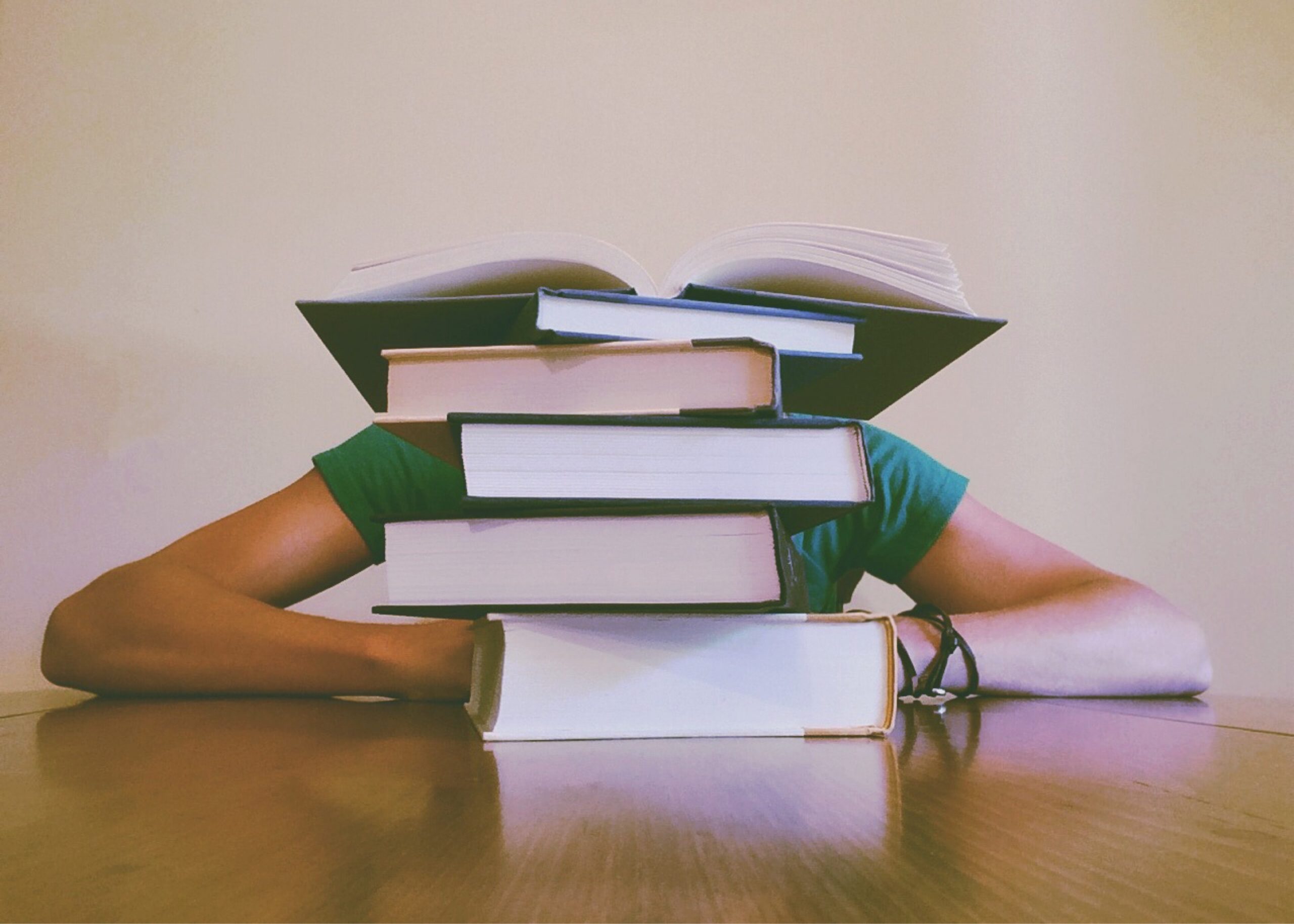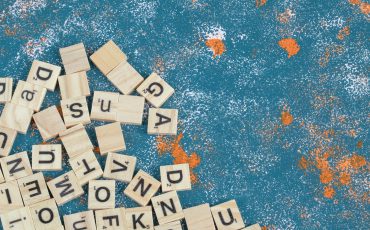Mindfulness for Dealing with Exam Stress

Content
Exams are a part of our lives. We spend most of our lives preparing for things like university exams, drivers license exams, midterms, finals, foreign language tests, interviews, etc. We’ve passed some of these exams and we’ve failed some of them. We can’t deny the stress that these exams create independent of their results. However, even though exams cause anxiety and stress, they’re a part of our current academic and professional landscape. So, it seems like a good idea to discover ways to manage exam stress.
So, how do we do that?
The answer is mindfulness. Mindfulness offers many resources that will help you identify the challenging parts of getting ready for an exam and relieve the effects of stress. Once you learn to manage the stress, you can achieve things that you’d never even imagined and take the pressure off certain aspects of your educational and professional life.

The Impact of Stress on Our Lives
Even though stress functions to keep us alive by helping us be aware of threats, it’s also a challenging emotion that can have an intense impact on our body and mind.
While chronic stress can be destructive in the long run, tolerable stress levels can encourage us to take the step that we feel hesitant about, motivating us to take action. Stress can function as the driving force when preparing for an exam. So, our goal should be to be able to identify and accept stress rather than trying to eliminate it from our lives.
One of the greatest benefits of mindfulness is learning how to cope with unpleasant emotions. Even though it may not seem likely right now, it’s possible to embrace stress as much as more pleasant emotions like happiness and excitement. Of course, accepting stress can be difficult at times. Needing help through stressful times and approaching yourself with compassion doesn’t mean that you’re weak, you’re just human.
Your Self-Worth Isn’t Determined by Your Achievements
Failure can be scary for some of us. Even though it’s an essential part of the learning and growing process, failing can sometimes make us feel down on ourselves. But, once you understand that your self-worth is independent from your achievements, this fear starts to become less overwhelming. Even if you don’t get the result you desire from an exam, you’re the same person who works hard, who cares, and who continues to grow… Your exam score doesn’t determine who you are or your value.
Often, when studying for an exam, we feel like we’re not doing enough even if we’re trying really hard. We may find it hard to believe that doing our best is enough. Do you ever feel that way?
Those kinds of thoughts that we’re not doing enough, that we should be better, can cause stress and anxiety. With mindfulness practices, you can work on navigating these feelings of inadequacy and create more realistic expectations. I know it’s not easy to accept that what we can do for now is enough. But, remember that in time you’ll start to see that your best is good enough.
When we feel inadequate, we tend to perceive the bigger picture more negatively, unable to see that we have many other options. However, the truth is that being unable to achieve the results we want isn’t the end of the world. Sometimes the best things in our lives, the ones that teach us the most, the ones that help us grow, happen when we don’t get what we want. That said, when the challenging emotions emerge around not meeting your expectations, you can give mindfulness a try and begin to forgive yourself. Mindfulness practices help us accept the situation as it is without judging ourselves.

The Positive Effects of Mindfulness
Being Able to Move Forward Despite Uncertainty
Being unable to foresee how the situation will unfold and what the results will be can feel defeating and lay the groundwork for anxiety. It’s very normal to get lost in our negative thoughts when faced with this kind of uncertainty and all those worst-case scenarios in our heads can start to seem convincing. Just consider what disaster scenarios you imagined in the past and how many of them actually happened just as you imagined. You managed to move on, right?
Of course, it’s difficult to move forward by accepting the possibility that you might fail. However, this uncertainty is also full of triumphs, not just failures. There will be times when you do better than you expect. The scary scenarios you think of may not happen or even if they do, the effects may not be as catastrophic as you think.
The only thing that we can be sure of is the present. By focusing on the current moment through mindfulness practices, you’ll be able to identify your emotions, notice when you feel overwhelmed, call on your strengths, and recognize when you need to rest. When your mind tries to convince you of the worst scenario, you can maintain a sense of calm by turning your attention to your body and breath through different practices.
Being Able to Appreciate Your Achievements
We tend to dwell on our failures more than we appreciate our achievements. Sometimes, even the smallest sense of defeat is enough to overshadow all our efforts and the obstacles we’ve overcome. Appreciating yourself for every step you’ve taken while preparing for an exam can be very valuable when it comes to your self-confidence. Feeling appreciated also increases our motivation to try by creating a sense of reward. If you only focus on your failures and are struggling to see your achievements, self-compassion and gratitude practices can be helpful. Those with a high level of mindfulness are generally more successful in appreciating their achievements and efforts. Can you make a change and try to celebrate yourself? What if you congratulated yourself, saying “I’ve done a great job!” instead?
Changing Your Perspective
You can use mindfulness practices to change your perspective about your exam experience. Generally, we consider exams as scary or unpleasant experiences. However, exams are just tools. They’re singular events that don’t define our intelligence or our identity, because we are ever-evolving beings.
Mindfulness practices can help you gain a more objective perspective by clearing your mind and softening your inner critic. When you look from a broader perspective, many things that you might be overlooking become visible. At this point, exams stop being the only reality in your life, leaving space for other realities.
Most of us ignore our social lives when hunkering down to study for an exam. Of course, it’s sensible to set aside some of our time for exam prep. However, when we withdraw ourselves from activities that we like, we isolate ourselves from resources that can help motivate us and feel rested. Taking a break doesn’t affect your success. On the contrary, it’ll help you more peacefully navigate the exam process because you’ll have taken time to relax. For example, when you feel tired or overwhelmed, you can go to the movies, exercise, or spend time with your friends. The time that you allocate for yourself will come back to you as energy. Remember that you can always find time to have fun and you should indeed take advantage of that.
Learning from Your Experiences
Reflecting on your experiences and observing this process without making any judgements can help you learn new things about yourself. You can try asking yourself the following questions to learn from your experiences during the exam process and apply that knowledge to your future experiences:
- What exactly am I afraid of happening? Am I scared to disappoint others? Myself? What happens if I don’t get the results I want?
- Did I have a similar experience in the past? How did I overcome it? How did I feel and how did it impact my life?
- What can I learn from this experience? (If you don’t feel ready for this yet, you can take your time and ask yourself this question later.)
Forgiving Yourself
The effect of an unpleasant experience you had in the past can change depending on where it stands in your life. Even though you can’t change the past, you can change your perspective about what happened. This way, you can reshape your memories and relieve their negative effects. To do this, first bring your attention to the present and start observing your emotions. Instead of being overwhelmed by unpleasant memories, you can move forward growing stronger from what you learned from these experiences.
Regaining Your Motivation
Mindfulness practices can help you regain your motivation during exam periods. When your inner critic speaks in a negative tone, it’s easy to start believing you can’t do it and give up. We’ve all been there. Being able to navigate this self-criticism is possible when you pay attention to that inner voice, your inner cheerleader. When you can recognize and identify your inner critic, you start questioning its authenticity. Because not every thought that crosses our minds is true. When you listen to yourself regularly, you can identify your needs much earlier and instead of feeling hopeless and giving up, you can choose to take breaks when you’re tired.

How Can We Benefit from Mindfulness?
So, what can you do to see the benefits of mindfulness in your life? There are many practices that you can use to help you navigate the exam period. You can make time for these activities to boost your motivation and manage exam stress. You can also use some mindfulness-based practices to calm down just before the exam or to maintain your concentration during the exam without panicking.
Focusing on Your Breath
Unfortunately, we don’t leave stress at the door when we walk into the exam room. It accompanies us not only during the preparation process but also during the exam. The stress caused by the belief that your life depends on it, or the fear that you won’t be able to use your time efficiently, or that you won’t be able to focus, are just some of the unpleasant worries we can have during an exam. In such moments taking deep breaths can help you calm down, following the natural flow of your breath in order to relax and refocus.
Practicing Self-Compassion
When you reach a place of calm, reminding yourself that you’re doing your best can be really helpful. Additionally, you can also benefit from mindfulness exercises that help you approach yourself with self-compassion after the exam, leaving the exam process behind and making time to celebrate your efforts.
Meditation
Mindfulness meditation is also a great place to start. Meditations for stress management, self-compassion, and motivation can help you make sense of this process and be gentle with yourself. By keeping your mind on the present, you can enjoy the pleasant moments in the preparation process without getting anxious.
Practices to Improve Concentration
Many studies show that mindfulness exercises contribute to improved concentration skills. Even when you spend a few minutes every day doing mindfulness practices for concentration, you’ll see that you have a longer attention span and that you can more easily regain focus when you’re distracted. For example, you can count your inhales and exhales starting from one and ending on ten. When you’re distracted, go back to one and count to ten again. Additionally, scanning your body starting from your toes to your head, focusing on the sensations your environment triggers, and examining the source of your reactions are some of the practices that you can use to regain focus.
Taking Mindful Breaks
Practicing mindfulness regularly strengthens the bond between mind and body. Having a stronger, holistic bond between your body and mind can help you identify your body’s need to sleep and to rest when you’re tired.
One of the most challenging things during the exam preparation period is taking a break without feeling guilty and being able to rest. When we don’t study, or engage in something that isn’t related to the exam, we may feel guilty. Sometimes we don’t allow ourselves to rest until we’re exhausted. However, we don’t have to wait to feel tired to take a break. Both our mind and body need regular rest. A well-rested, fresh mind is very important in order to do our best on an exam.
Taking mindful breaks can help you manage exam stress and improve your performance by keeping your mind clear. Instead of activities like playing a video game or watching a movie which isolate you from your current emotions and act as an escape, you can try mindfulness practices.
You can take mindful breaks and watch your surroundings outside, during your lunch breaks, anywhere really. Even focusing on your senses as you eat, examining the taste, smell, or texture of the food, is a mindful practice that grounds you in the moment. Because your mind will focus on your current emotions and sensations with mindful breaks, it can be a good idea to stay away from the exam materials that keep your mind busy.
Relaxation and Rooting Practices
During exam periods, you can feel tired, tense and numb. There are relaxation and rooting exercises that help you relieve the effects of stress on your body. For example, with body scanning exercises, you can identify and begin to relieve the pain in your back, numbness in your feet, the tightness in your jaw muscles, the tension in your neck. You can also relax with deep breaths. When you exhale, you can release yourself to the ground and when you inhale, you can relieve the tension on your body, feeling renewed by the fresh air circulating throughout your body. These relaxing practices can also help you with your sleep as well. Remember that you can take a break with these exercises whenever you need to relax.
I hope you find these tips helpful. Good luck with your exams! Even if they don’t go as planned, it isn’t the end of the world. Remember exams have never been more important than you and they will never be.
Translator: Damla Saydam Çizme




